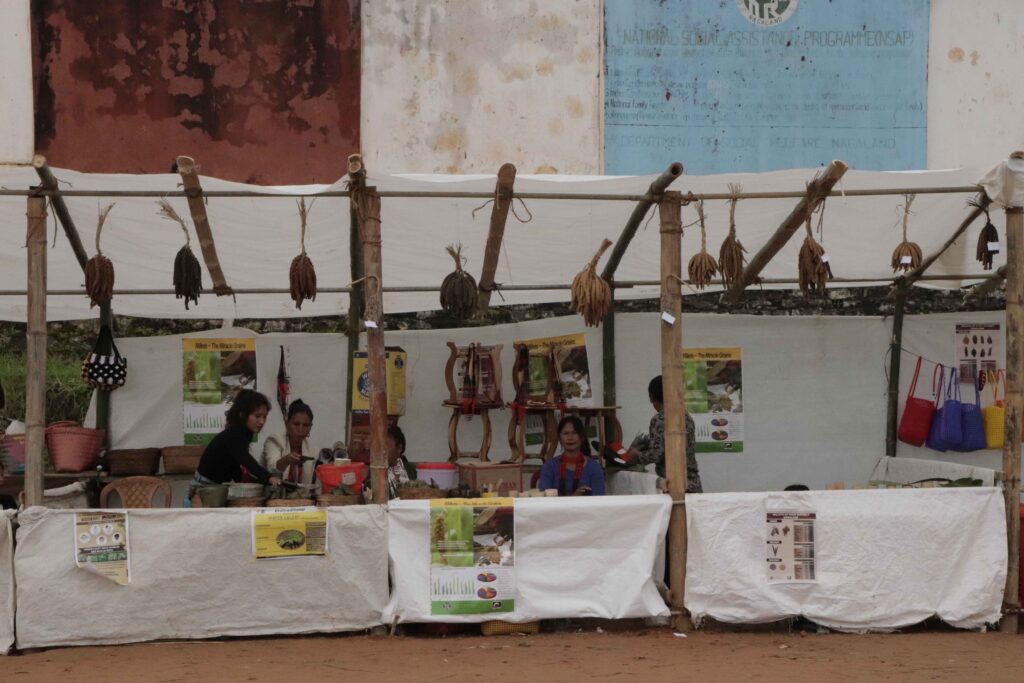Millet is a crop that ensures food security and can support the livelihood of many communities. In Nagaland, millet is also deeply rooted in the culture and traditions of indigenous communities. However, with rapid changes and development, the reliance of communities on millet has reduced over the years. Making way for the millet-based biodiverse farming practices once again can strengthen food systems and promote good livelihood opportunities in the region.
North East Network, Nagaland has been taking many steps to bring back a crop that is lost. From farmers market, recipe training to creating awareness, NEN’s efforts to promote millet farming has been consistent. As a part of the International Year of Millets 2023, NEN also took part in several Millet Festivals with different stakeholders.
Shamator, August 5: The 3rd edition of the Millet Festival was held in the public ground of Shamator. It was jointly organized by the Self Employed Women’s Association (SEWA), Department of Agriculture, Millet Network of India and North East Network (NEN). Focusing on the thematic area of “Millets for Community Resilience”, the celebrations were about reintegrating millet as a part of the communities.

In the process of bringing back millet, it is important that different stakeholders engage and work together. This festival was one such platform where different stakeholders united in their approach to promote millet cultivation and production. Wekoweu Tsuhah, State Coordinator for NEN Nagaland in her keynote address shared that with the loss of a crop, a part of our culture is lost. The State Coordinator appealed to all stakeholders to involve in millet production while at the same time, cautioned against monoculture, as millets were always planted alongside other crops.
Another highlight of the event was a Farmers Market which saw participation from 8 villages which are Yakor, Chassir, Muleangkiur, Leangkonger, Shamator village, Shepong, Rurur and Shamator town. The festival, celebrated with no plastic waste, has been attended by around 370 people.

Phor, August 9: Around 200 millet farmers, leaders and elders from five villages including New Phor, Phor, Wuzu, Shatuzha and Yisisotha participated in the Millet Festival organised by the Millet Sisters, New Phor Village in collaboration with North East Network (NEN) and Millet Network of India. The festival was observed in commemoration of the International Day of the World’s Indigenous Peoples.
A keynote address from NEN team member Vilazonuo addressed the importance of millet and how it was deeply rooted in the indigenous communities’ culture and traditions. While acknowledging that rapid change is taking place in local communities’ food and farming systems leading to loss of our biodiversity, it was shared how millet based bio-diverse farming practises by farming communities is the keystone to build communities’ resilience.

Demonstration by New Phor community
The festival focused on how bio-diverse millet based farming practices can strengthen the food-system of communities through partnership and collaboration between community leaders, governments, NGOs and policy makers. The platform brought together multiple voices while addressing the current challenge our communities are facing including climate change and food security issues and how millets can be used to deal with these issues.







